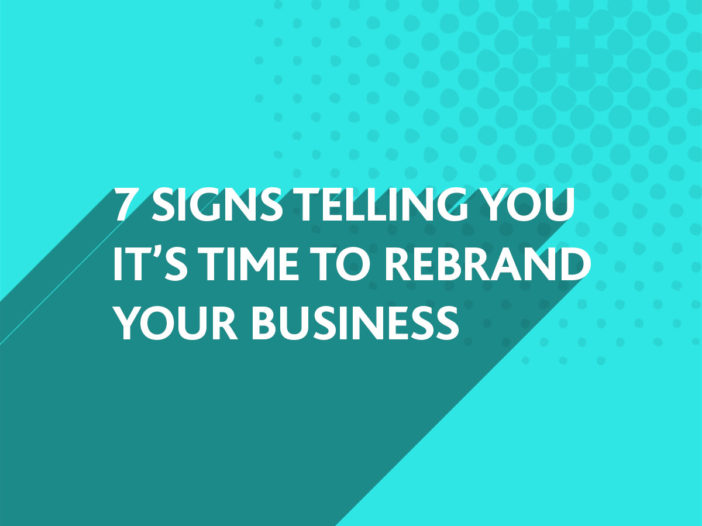
There comes a time in the life cycle of many established businesses when the owner wonders if the original company name might be doing more harm than good. But how can one know for sure that rebranding is the right thing to do?
Maybe it’s just the economy, or the competition, or a change in staff?
Well, now there’s a gauge, a metric, seven easy to identify indicators to help determine if it’s the name that’s causing the problem.
Rebranding Symptom #1: – The Guessing Game (Explaining what business you are really in.)
Of all the reasons to rebrand, this is probably the most urgent. Worse than having a name that leads nowhere is the name that leads in the wrong direction! Think of it this way, instead of starting off in neutral with a coined name, this type of name has customers going into reverse. You shouldn’t need to waste time trying to explain what your business does if your company name can do that for you.
An example would be ‘The Centre for Perfect Balance’. No, this is not a yoga studio or a clinic for ear/balance disorders but a physical sports therapist!
Rebranding Symptom #2: – ‘We’re More Than… (fill in the blank)’
This one is classic. A company becomes synonymous with its core product offering and then wants to expand. The business name is often directly tied to that product and rather than a rebrand, the company spends wasted advertising budget in a vain attempt to educate the public that they are more than what they are known for. The InnKeeper’s Lodge says on its website that it is ‘more than just a good nights sleep’. The problem with this is that it tells you nothing about what the ‘more’ is!.
There are many examples of this approach and a quick look on the internet will bring you prime examples such as Oxford Castle (more than just a castle), The Hendy Group (more than just a car dealer) and The National Breakdown Service (we’re more than just breakdown cover).
Rebranding Symptom #3 – Trademark? What Trademark?
Some owners actually like their names but they get that dreaded cease and desist letter from a not-so-nice competitor. Or perhaps not even a competitor but just someone with a famous mark. Rather than pay the legal fees to fight it, it’s sometimes better to use those funds to better define, differentiate and showcase your company. And if a competitor is indeed that close in name or spelling, do you really want that type of confusion? Even when you can get by, do you really want to be McDoogles Fast Food when there is a McDonalds just around the corner? So before you write a cheque to the legal team, you might want to invest that in a brand identity that will set you apart from the rest.
Rebranding Symptom #4 – ‘We’re Not in Kansas Anymore’ (Geographically Limited Names)
Geographically named businesses are perhaps the most common rebranding need since many eager entrepreneurs don’t envision themselves five years down the road in numerous markets.
Imagine that your small bathroom installation company, which is aptly named ‘Billingshurst Baths’ grows and you need to consider opening new outlets in surrounding areas. You could keep the ‘Double B’ wordplay and only look to move into areas that begin with the letter B (Barns Green, Byworth, Broadbridge Heath etc.) but then you could be moving into the wrong area and for the wrong reasons.
Rebranding Symptom #5 – Bad Company (When You Share Your Name With Unsavory Subjects)
News flash. Sometimes life isn’t fair. Your company name suddenly shares the spotlight with a notorious criminal or sensational news story. A sports drink came out in 2005 called Tsunami. (Unfortunate timing to say the least.) The proverbial ‘perception is reality’ takes over and you find yourself defending your name, or hoping time will eventually work in your favour. If you have thousands of pounds then you can overbrand these types of issues (witness iPad, and Wii) but few companies have that type of money and marketing hype on their side. For most business owners, it makes sense to start with a fresh impression that opens doors rather than shut them.
Rebranding Symptom #6 – Vanilla Anyone? (The Generic Brand Name Curse)
A number of new business owners believe the most effective way to advertise their business is to make the name a literal description. At first glance, this would seem to make sense. But it backfires for the same reason that should make it succeed. These names are so straightforward that thousands of other business owners have thought of the same idea. And to make matters worse, they merely describe what you do, not how you do it. A company now called Big Earth was formerly known as Wholesale Landscape Supply. The problem was, the name sounded like a yellow page heading. Clients couldn’t remember it. It sounded more like a description of the company than the name itself.
Rebranding Symptom #7 – Big Brother (When A Brand or Product You Sell Overpowers Your Own)
This is an insidious problem that can sneak up on a business owner. The popular brand product they’ve sold for years becomes so famous that it overshadows their own bland company identity. Then there’s a power struggle. The owner of the product line begins to dictate terms, or insist on more floor space, or demand a certain increase in sales and inventory. If not, the big brand name might get pulled out or given to a competitor. I’ve witnessed companies that took easy advertising co-op money to promote their key product lines, to the point that those product lines took over their identity. And I’ve seen those same product brands then move on, leaving the owner with little to no brand equity. Riding on the coattails of an established brand definitely has its pluses and minuses. Be sure to think through your long-term business strategy (including your exit strategy) when deciding whether to invest your marketing budget into an existing product or to create your own high-powered, high profile brand.
Whether you call them the seven signs or the seven sins, beware of these dead-end traps. Rather than explaining, battling and marketing your way around them, consider regrouping and rebranding your company for continued growth and success.
If you are thinking of rebranding your business and would like BlueFlameDesign to assist then contact us today.

These are good, but here are a few to add:
Identity Crisis
When a brand either has no Big Idea or story behind it or has shifted to a new set of vision/values without bringing the brand along into this new zone. This often happens with start-ups and mergers.
Kitchen Sink
This one is close to your #2, but more insidious because there is a general lack of focus when a brand tries to ‘do everything’ to the point it has no focus or ‘big idea’.
Jeckle and Hyde
Ever seen a holding company that thinks its a masterbrand? Take a look at United Technologies Company (www.utc.com). Their ‘logo’ is competing with and watering down the very established brands they hold. UTC didn’t create these brands, it acquired them and , like the Borg in Star Trek, is acting the way urban sprawl does when it reaches a town with its own established character and history. You are either a ‘branded house’ or a ‘house of brands’–you can’t have it both ways!
Incompatibility
BP decides to ‘go green’ with a huge push “Beyond Petroleum”. It works for awhile until the big oil spill reminds everyone just how far beyond they’ve gone. Oil and Water don’t mix folks. You can only fool people for so long…
Doppelganger
This one seems so obvious perhaps that’s why you didn’t list it. If customers can’t tell you apart from the competition, you probably shouldn’t even be in business. But it’s amazing how many copy cats there are out there. It may be tempting to ride on another company’s coat tails when you are young and dumb, but stepping out from under that shadow will prove nearly impossible–and your customers might find that other company when they are looking for you! Don’t just ‘think different’, BE different!
Steve – Thank you for taking the time to comment.
I certainly agree with your ‘Kitchen Sink’ point, although I personally feel that it would be the ‘young’ companies that may fall foul to this approach – wanting to do everything and please everyone. It sounds a great idea in principle but could be fatal to the success of a business in the long term. There’s nothing worse than a client believing the claim that you can do everything only to find that you achieve nothing.
Again, thank you for adding these additional and valid points to make the post more informative to others.